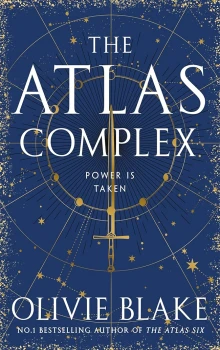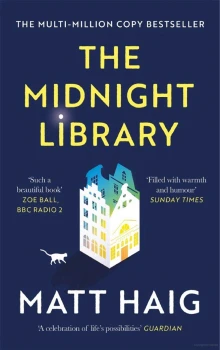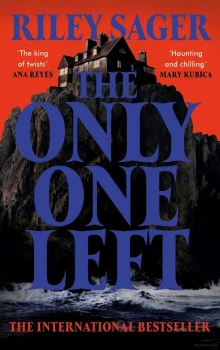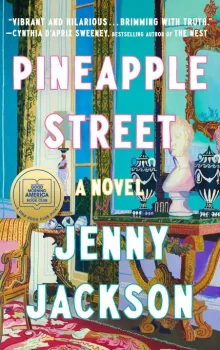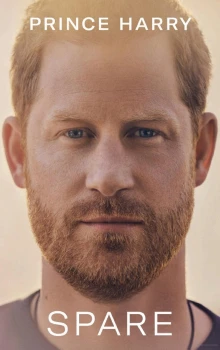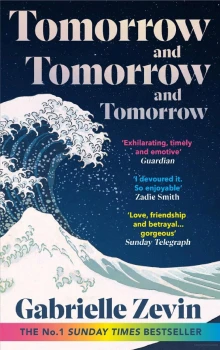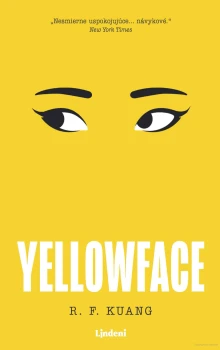CALLUM
T
Tue, July 19 at 2:16 P.M.
Stay away from my sisters.
Hark! He speaks!
And do I sense an implied “or else”?
I don’t have to imply it. You know what I mean.
Indulge me anyway, as a treat.
Fine. Stay away from them or I’ll kill you.
Really? Over the half siblings you haven’t spoken to in years?
Given your track record it seems unlikely.
I barely need a reason, Nova. You’ve had it coming a long time.
Callum looked up from his phone screen for a luxurious drag of stale sweat and pub food, indulging a sip from his English pale ale with an air of revelation.
“Beautiful day, isn’t it?” Callum called to one of Adrian Caine’s little minions, who stood behind the bar glaring at him. (“Little” being an obvious misnomer, as Adrian Caine preferred his associates with more muscular bulk than sense. This one, who made a point of flashing his illegal handgun every time Callum came around the Gallows Hill pub, was called Wyn Cockburn. A witch—terribly full of himself for someone with cock in his name just sitting there, flaccid and unwrapped.)
“Oh, Callum.” Alys Caine walked onto the pub floor from the kitchen, spotting him just as something rugby related happened on the television screen, resulting in a roar from a nearby table of witches. “I didn’t realize you were back already. Are you looking for my father?” she asked, sidling up to the table in the corner where Callum sat alone.
“Just having a pint, Miss Caine, not to worry.” Callum set his phone on the table and flashed her a grin, feeling particularly elated over his recent conversational success. “How’s it going with the neighbor girl?” he asked, pointedly dropping his voice. (Their cock friend Wyn looked over with a flick of ownership, as if Callum had brazenly dared to play with one of his toys.)
“Despite your revolutionary advice to, quote, ‘just be myself,’ she still doesn’t know I’m alive. So, you know. The usual.” Alys sat down beside Callum with a sulky thud, teenagering with aplomb and speaking with precisely the accent that Tristan did everything in his power to conceal. (Funny that, as it was an unadulterated delight.)
“You probably shouldn’t be here,” Alys added, gesturing in Wyn’s direction before reaching for a sip of Callum’s beer. Callum chuckled, shifting his phone aside on the table and gamely nudging the glass her way. Alys was of age, obviously, but her father (or more accurately, her father’s goons) had somewhat puritanical expectations for her behavior. Some that she’d been entirely too forthcoming with, too.
Alys’s openness about her life suggested to Callum that her upbringing was starkly different from her elder half brother’s. Unlike Tristan, Alys had an air of someone categorically unthreatened, who didn’t need to keep things under lock and key. (Callum would guess she had conspicuously fewer bruises, too.)
“Wyn’s not exactly a fan of yours,” Alys cautioned, raising the glass to her lips as Callum reveled privately in the traumas of the only Caine son. “And I’m not sure Dad’s as patient with you as he makes himself out to be.”
Oh, Callum was aware. It was impossible not to be aware of Adrian Caine’s feelings on the matter, as he was very much like someone else Callum knew, and therefore unable to conceal the perennial nature of his suspicion. Unfortunately, there were so few venues from which to adequately terrorize Adrian Caine’s estranged adult children. Had Tristan felt more passionately about his former friends or fiancée, Callum would be engaging in different lifestyle choices entirely—but, as luck happened to have it, it was his familial past that Tristan had the most complex feelings toward, and let it never be said that Callum was incapable of meticulous research.
“I genuinely can’t imagine why Brother Cockburn would be so opposed to my presence,” Callum said, winking at Wyn and biting his lip lasciviously. An irresponsible taunt, but Callum reserved so little time for play these days. “After all, I’m doing your dad a favor by luring in the son he’s been so adamantly tracking down.”
“Yeah,” Alys said, ignoring Wyn’s wordless look of murdery rage and taking another unbothered sip from Callum’s glass, “but Dad’s got a way of compartmentalizing between people he personally dislikes and the ones doing him favors—right up until he doesn’t feel the need for distinction anymore.” She licked the beer from her lips and slid the glass back to Callum. “You don’t think he actually means to kill Tris when he finds him, do you?”
People’s interests were largely changeable, not unlike the bronze-colored liquid in his glass. Whether Tristan lived or died at his father’s hands depended on who Tristan proved to be when Adrian “found” him. Callum, who had his own reasonably informed suspicions on the matter, shrugged. “You tell me. He’s your father.”
She grimaced. “He hasn’t got much of a sense of humor, so it’s probably not a joke. Still,” she remarked with an air of opportunism, “he never says what exactly Tris did to cross him. Like, did he steal from him or something?” she asked, as if such a thing might be interesting and therefore befitting the mysterious estrangement from her brother.
She’d been asking variants of that question at increasing intervals over the past few weeks. “It’s really between Tristan and your father,” Callum said. “I’m not at liberty to say.”
“Mm.” Alys seemed to process that for a second, then kicked Callum’s ankle. “Well, get out,” she said. Across the room, Wyn had leaned over to one of the others, eyes never leaving the various places Callum might take a bullet. “And I say that as a friend.”
There was a hint of cinnamon and clove behind her tone, a spice belying the warmth of the phrase, as if it pleased her very much that Callum should think she meant it. At her age they tended to be very secure in the quality of their duplicity, largely for undue reasons.
Still, he played along. “Don’t tell your father we’re friends,” Callum advised. “I sense that would reflect poorly on you.”
“Yeah, Bella’s not a fan either,” said Alys. “Thinks you’re too pretty.”
“She’s absolutely correct,” Callum confirmed.
“Right, well. Bye.” Alys rose to her feet, giving him an anarchical look of suffering, and returned to the kitchen corridor, through which Callum imagined she would pass into the offices of Adrian Caine’s operation and fulfill her daily destiny as Adrian’s beloved daughter.
That, or pine silently over the neighbor girl, who Callum happened to be aware did know of Alys’s existence, but telling her so seemed like ruining half the fun of adolescence.
Ah, youth.
“There you are.” Conveniently, Reina had stormed into the pub, glaring around for emphasis. “Seriously, here again? Do you have a death wish?” she asked, gesturing to Wyn with what was, for Reina, a mostly inoffensive scowl.
“You’d think so,” Callum agreed as Reina filled the empty spot next to him where Alys had been. Something rugby related had happened in a negative way, Callum noted, which momentarily disrupted Wyn’s telegraph of threats from the opposite side of the room. “So, what’s wrong?”
“Nothing’s wrong,” Reina said, with another, more customized scowl.
“Right, obviously not, you’re in a terrific mood.” Callum drained the last of his pint, plucking his phone from the tabletop and returning it to his pocket. Inspiration had yet to strike for his reply. “What is it? Someone try to kill you again?”
“Yes, actually, another suit. Lost him a few blocks away.” She glanced around with a look of unfiltered disdain. “We’ve really got to get out of London.”
Callum shook his head. “Can’t, though, can we? We’re contractually obligated to Adrian Caine until I’ve fulfilled my part of the bargain.”
“Which you’re not even trying to do.” She glared at him. “You promised him Tristan, which is essentially like offering to sell him something you no longer own. Which I’m pretty sure is also the foundation of what they do here,” she added with a look of disapproval, almost as if she opposed it on a moral stance. A very Rhodesian school of thought.
“I know,” Callum agreed. “I’m a genius.” He rose to his feet, leaving a handful of mixed bills on the table. He’d never understood British currency and didn’t plan to learn. “So,” he continued, “what’s on the docket today? Any other mobs that need straightening out?”
Reina wasn’t listening, having noticed the resurgence of Wyn’s tireless attention. Unfortunately, his looks did not kill, though Callum invited him to try. “Has Tristan even answered you?” Reina muttered, eyes flicking to the pocket where Callum had so cleverly hidden his phone. “I assume once you’ve pulled his pigtails for long enough, you’ll once again find the energy for a more productive hostility.”
“Of course not,” Callum chided her. “As you know, there can be no end to the hostility until our oaths to the homicidal library have been adequately discharged.”
“Right, so to recap the plan: you’re going to anger him enough that he eventually comes after you just to kill you?” Reina prompted.
“No,” Callum reminded her, “as this time, I’m going to be slightly less charitable and kill him first.” And the answer to her actual question was no, Tristan hadn’t answered him. Not sufficiently, anyway. Not yet. In the meantime, Callum was still mulling his response. “Have you answered your mysterious benefactor yet, by the way?”
Reina had been in receipt of a message from an unknown sender some days prior. She had not informed Callum of the message, but he was intimately privy to her emotions (and also, she had a tendency to leave her phone lying around). He’d let her have the secret for a while to keep the peace, but there was only so much entertainment to fill his time while he waited for Tristan to give in to temptation and play.
“I—” Reina glared at him again, with an air of violation this time. “How did you know about that?”
“I can’t believe I have to be the one to tell you this, Mori, but—” Callum leaned closer as he angled himself toward the door. “I’m actually an elite member of a secret society.”
She shoved him away, taking the lead. “I can’t decide if I hate you more when you’re depressed or when you’re in a good mood,” she muttered as they exited the pub.
“I love that for us.” Callum waved to Wyn as they went, blowing him a kiss before donning his sunglasses and glancing again at Reina. She was feeling obstinate again, it seemed. “So, have you thought up a reply?”
Her mouth tightened. “There’s no point. At first I thought it was—” She broke off, looking away as a mix of things that smelled paternal wafted generally around her aura; old leather books, mysterious offers, the unreachable nature of personal validation. The signature pathological fingerprint of Atlas Blakely. “But it wasn’t.”
Of course it wasn’t. Callum already knew that, having actually saved Parisa’s phone number to his contacts in the event of being elusively contacted by her, but as he was in such an obliging mood, he decided to overlook the basic protocols of personal communication.
“Shouldn’t you be pleased?” he asked her, genuinely curious. “You wanted Varona to value you and now he does. You wanted Parisa to acknowledge you and now she has. Seems to me like everything’s coming up Reina.”
“I didn’t say it was—” Reina gave him a spiteful look that was near perfect confirmation. “Look, I’m not interested in moving backward,” she grumbled. “I’m not going back to the house. And as for Parisa—” Reina had a look, Callum was learning, that seemed specifically reserved for clenching her teeth around Parisa Kamali’s name. “She didn’t even say what she wanted. She’s just expecting me to do her bidding, no questions asked.”
Which was evidently tolerable, Callum observed, when Reina had thought the sender might be Atlas. But again, he very helpfully did not point that out.
“Seems unlike her,” Callum mused.
“What? It’s exactly like her—”
“No,” he corrected, “I mean that it seems unlike her to attempt something she already knows would never work, like trying to get you to do what she wants. What did she say?” Beyond observing the existence of Reina’s incoming messages, he gamely drew the line at reading them. (Also, he hadn’t yet guessed her password.)
Reina, predictably, began to mumble in a lying way. “I’m perfectly capable of reading between the lines—”
“No, you’re not,” Callum corrected, holding out his hand. “Give me the phone.”
“I told you,” Reina argued, turning to face him. “Whatever she wants, it doesn’t matter.”
“Call it a matter of professional curiosity, then.” He beckoned with his outstretched hand. “Give it.”
Just as he said it, he sensed the presence of an inconvenience; a moment’s distraction. A shift in the scenery, which had been occupied by the usual bland mix of human weakness until it became dominated by one particular thing. A tinny flavor, like the taste of blood.
“Why?” Reina growled. “Just so you can prove I’m—”
There it was, in uniform. Law enforcement again. What a convenient place to put an inferiority complex and a fondness for following orders. Callum pushed out his hand for what was unintentionally Reina’s mouth, and she bit him.
“Ouch, for fuck’s sake, Mori—”
Even with the sting from his palm, though, he gathered a little extra oomph. On his own it was sufficient to send the cop elsewhere, of course—even to convince him to come to Jesus or wherever Callum wanted to assign his salvation for the day—but lately, Callum had been enjoying the ability to override the fundamental nature he was so often having to use as a tool, or a mere jumping-off point. With Reina, in the same amount of time and with no substantial effort, he could rewrite a person’s code from scratch. Suddenly, this particular cop was bereft of purpose, easily filled. Callum made one or two suggestions: take an interest in manual labor, commit to scrubbing toilets or laying brick for a change. And also, for fun, stop voting Tory, get off social media, and call your mum.
Callum had always been honest with Reina about the limitations of his powers. He had seen them in action, that whatever he put in motion wouldn’t stop, necessarily, but would almost certainly warp. People were fundamentally in a constant state of self-correcting or self-affirming, changing or becoming more unchangeable depending on how pliable they had been to begin with. What Reina wanted was to force everyone to a single harmonious note of synchronicity; she wanted to make everyone care, and to both their credit, Callum could do it. He could do it on an enormous scale. He could override human nature for a time—to an extent. He could save lives or end them; he could raise the strings at will and make his puppets dance.
He could do it.
But he also knew something about the falseness of illusions, the thin veneer of compassion-seeming camouflage that could make a person appear to care. It wasn’t the same thing as having the ability to actually do it. He could give someone a feeling, but how they acted on it was out of his control unless he stayed there, monitoring their every move.
For example, his mother. He could make her want to stay alive in the moment. He couldn’t make her want to do it in all the moments plausibly preceding her natural death. That wasn’t how emotion worked, or how people lived. Life was not a matter of saying yes once, on one significant but solitary occasion. Life was a series of difficult risings that followed impossible blows. To live was to experience a wide spectrum of terrible, destructive things, but only so often that the desire to make beneficial choices could still more frequently win out.
Reina might not understand the difference between those two things, but Callum did, just as he understood that changing the political affiliations of a man using a badge to obscure a homicidal nature was ultimately treating one small symptom of an incurable infection. No matter how Callum played this game, he would always lose it. If it wasn’t this cop, it would be another. Someone would always want him dead for his magic or his personality, the latter of which was at least a very defendable reason. There were plenty of people others would happily kill just for the optics. Just to bend the world into a certain shape. Which wasn’t to say Callum specifically felt anything beyond ambivalence about it—he’d benefitted from that kind of attitude for the entirety of his life and it wasn’t up to him to question it, much less change it.
You didn’t get to choose who hated you, who loved you. Nobody knew better than Callum how little a person could actually control.
“Give me the phone,” he said once the cop was gone, having been adequately persuaded. Reina handed it to him, as sulky as Alys had been a few minutes prior despite being nearly a decade older.
Callum opened her messages, which were sparse, not even filling the screen. At the top was a conversation with an unnamed contact that was clearly Nico de Varona. Then another unknown contact, recognizable by the country code as Parisa, which Callum selected.
The first two messages were days old, from earlier in the week.
Saw you on the news.
I’ve got a better idea.
Then two more, hours old.
Atlas will probably come for you soon. But trust me, the Society can go fuck itself and so can everyone else.
We’re down to five months at best. Use it or lose it, Mori. Come find me when you’re ready to talk.
“Parisa’s at the end of her rope,” Callum judged, handing the phone back to Reina. “It’s a peace offering. You know she wouldn’t wave a white flag unless the situation was actually dire.”
Predictably—if disappointingly—Reina didn’t budge. “She could come crawling to me on her knees and it still wouldn’t matter. I don’t need her to tell me what she thinks I’m doing wrong.” Reina tucked the phone back in her pocket and stared around at the thinness of the crowd. “Was that cop alone?”
“We’re fine for now.” Callum’s good mood had evaporated somehow. Was it Parisa’s message? He normally needed a person’s physical presence in order to properly gauge their feelings, but somehow he felt it; some immensity of loss that was unavoidable inside her message. The Society can go fuck itself and so can everyone else.
Something had changed for Parisa Kamali.
Is there something specific you have in mind for me? Callum had asked the Society bureaucrat, Sharon something-or-other, the one who’d summoned him to the Alexandrian offices to chat about his prospects. It wasn’t unlike the donation requests he still received from the Hellenistic University, who rang their alumni consistently for updates, collecting accolades for their proverbial shelf. In this case, the Society wanted to know: Did he have any interest in politics, or statecraft? Would he care to expand his family’s empire? With everything he’d learned—the privilege of knowledge he’d been provided—what would he do next?
With your skill set, Mr. Nova, we do recommend public office, she’d said.
Fascinating. Worrisome. Which office?
She hadn’t answered. We can expedite your visa if you’d prefer to stay in the United Kingdom.
You know what I can do, he replied. You’d subject the general populace to it? Your own country?
Callum had felt a lot of things in her answer. Responsibility. Bitterness. Everyone was mainly one important thing, and Sharon’s important thing was so far removed from him, so distant, that she was one of the few people who’d ever looked at him and genuinely could not care less. Mr. Nova, let me be very clear about one thing. I have a job. And your opinion of my performance is not relevant to my employment.
A sick child was Callum’s guess. The most important thing in the world to Sharon, whoever it was. He could tell it was expensive. It was bad enough to buy her the right to look at his file and dismiss the consequences out of hand. Probably this job of hers was lucrative for its requisite skill set—compared to similar positions, it likely had excellent benefits and a very good pension. Sharon had signed a nondisclosure agreement, most likely, and probably wore a permanent silencing charm. . . . He had focused for a moment and then found it; there was a tiny itch near the edge of her chemise, a small tattoo. She didn’t hate it, keeping the Society’s secrets. It was what allowed her to come home to a . . . daughter? Yes, a daughter who was still alive. For now.
The Society can go fuck itself and so can everyone else.
“Are you ready?” asked Reina impatiently.
A parliamentary special election. Their biggest attempt so far to rig the results and offer humanity a shot at doing something humane. Reina wanted to give it to the party who loved sick kids, probably, so that would be a win for Sharon. You’re welcome, Callum thought.
“One second.” He took out his own mobile phone, scrolling back to the messages from Tristan.
I barely need a reason, Nova. You’ve had it coming a long time.
That was from a few days ago. Callum had snapped a few selfies since, including one of himself in the pub, but he hadn’t sent them. He didn’t now. He typed very quickly and pressed send, though he would not receive a response for several hours. Maybe he was getting more powerful at a distance, because he was sure he could feel the tension. The times he knew that Tristan was opening his messages just to stare at Callum’s name until finally, after at least a dozen rounds of sapiosexual edging, Tristan finally let himself give in.
Glad you’re starting to get it
3:43 A.M.
Get what
That it was always meant to end with one of us.
